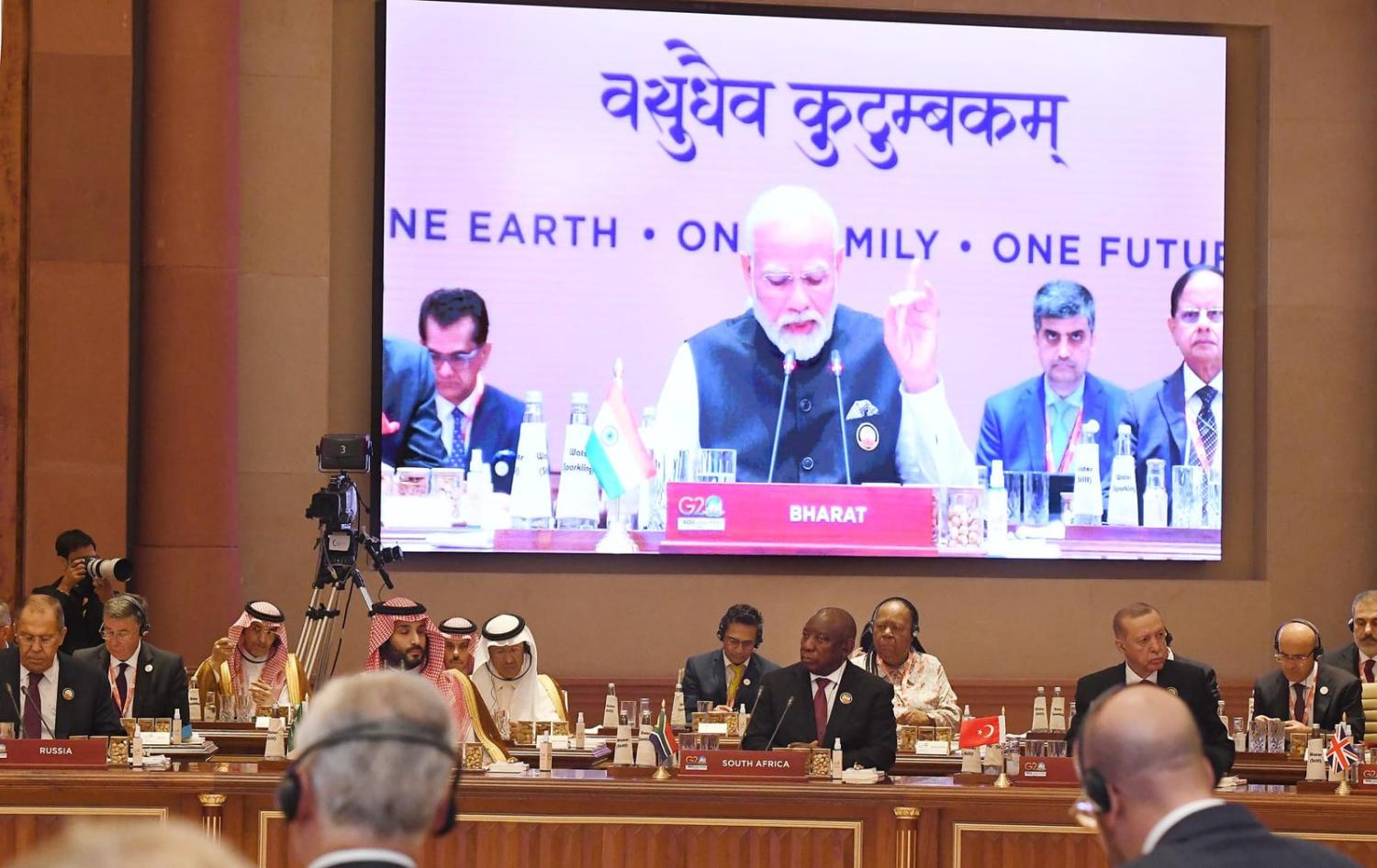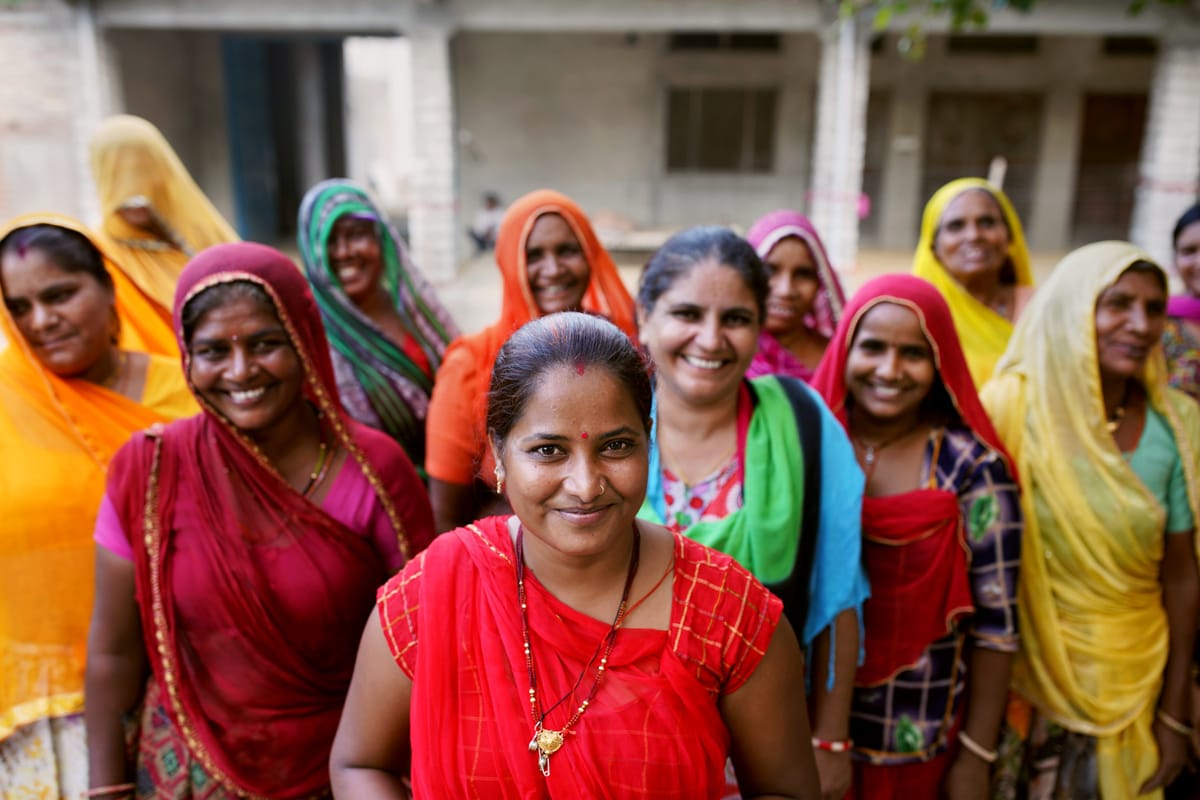Bringing the Global South to the table was only one part of a new inclusiveness.

The G20 leadership baton will soon pass from India to Brazil with momentum on issues involving the environment, human security, equality and equity. India’s G20 presidency was focused on sustainable and inclusive growth – and while the solutions remain elusive, India should be credited for breaking open the conversation. The G20 was and will remain a fundamental economic platform, but without addressing the challenges of climate change, disasters, growing water and energy insecurity, democratic backsliding and gender inequality, economic success will never be achieved. It is here that India’s G20 presidency, which was not without criticism abroad and at home, made a difference.
The major challenge shown through years of fraught diplomacy is the need to build consensus, and on this test India was successful. Welcoming the African Union as the newest member ensures the grouping becomes a more inclusive and representative multilateral forum. But further, recognising the human costs and impact of the war in Ukraine globally on lives, food supplies, energy security and inflation as a part of the communique – when just days before this seemed unlikely – was an achievement, particularly given fears that the conflict could overshadow the summit to New Delhi’s detriment.
But beyond these two key issues, India also put the Global South firmly at the centre of the G20 agenda, along with several other important achievements, making the meeting more inclusive than previous years.
Drawing women-led development into the mainstream was a priority of India’s presidency, resulting in the G20 announcing the creation of a new Working Group on Empowerment of Women to support the G20 Women’s Ministerial that will start during Brazil’s term. Other initiatives include commitments for developing inclusive regulatory frameworks and policies particular to addressing the gender divide in the digital economy, the link between women’s empowerment and urban growth, and the recognition of the disproportionate impact of climate change, biodiversity loss, desertification and pollution on women and girls. The declaration also clearly outlined the need for greater participation and decision-making by women in mitigation, adaptation and disaster risk reduction strategies and policy frameworks.
Women-led development and gender focus became a strong theme across several working groups and engagement groups beyond the W20, including the U20, Y20 and T20. The U20 communique also included a strong focus and stress on water security as compared to previous years and a concept of a women-led framework for cities that I was a part of developing.

In a special fashion, the T20 itself was diverse with close to 1,000 authors from more than 700 institutions globally that produced 300 policy briefs covering various thematic areas under the G20. Similarly in the case of the B20, laying crucial importance to inclusive growth and policy recommendations, a B20 Global Institute has been proposed to ensure that policy recommendations can be collectively actioned and not only remain on paper.
India’s summit ended with the highest amount of public engagements domestically by a host country, bringing in voices and perspectives from the ground that can truly work to move the agenda forward.
Following years of macroeconomic instability, and at the midway point of the Sustainable Development Goals 2030 agenda, the question of inclusive growth and what it means to developing nations struggling with debt was an important aspect of debate. Trade has always been the cornerstone of sustainable growth, which was boosted with the adoption of frameworks such as the G20 Generic Framework for Mapping Global Value Chains and High-Level Principles on Digitalisation of Trade Documents for trade facilitation. This was coupled with an endorsement of the G20 Financial Inclusion Action Plan 2024-26 and its link with digital public infrastructure, future of work programs, support for the gig economy and reskilling.
While the G20 is not the primary forum for climate change negotiations, there is an understanding that the discussions and outcomes of the G20 process will feed into the upcoming COP28 negotiations and hopefully beyond. By positioning itself as a leader of the Global South, having hosted a summit on the theme in January 2023, New Delhi championed the ideas and needs of developing nations that are not G20 members and rarely have their voices heard.
Over the last few years, the leadership troika of the G20 has been held by developing countries and with Brazil soon to assume the presidency, the prioritisation of human security issues with a stronger emphasis on operationalisation as a part of the international agenda must remain central. Just global systems can be better achieved through a more inclusive G20, and this momentum should not be lost.
